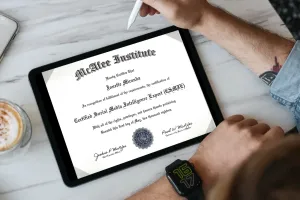Why Accreditation & Legitimacy Define Your Professional Future
Accreditation & Legitimacy are the cornerstones separating real professional advancement from wasted time and money. When evaluating training programs, here's what you need to know:
Quick Answer: What is Accreditation & Legitimacy?
- Accreditation: A formal review where independent bodies evaluate programs against quality standards.
- Legitimacy: Your credential is recognized and valued by employers, government agencies, and licensing boards.
- Key Benefit: Ensures your educational investment advances your career.
- Verification: Always check for accreditation by bodies recognized by the U.S. Department of Education (USDE) or Council for Higher Education Accreditation (CHEA).
- Risk: Unaccredited programs lead to worthless credentials, ineligibility for licensure, and wasted tuition.
In competitive law enforcement and intelligence careers, accreditation determines whether your training opens doors or hits dead ends. It's the difference between a credential that gets you promoted and one that gets your resume tossed aside.
Accreditation involves a rigorous cycle of self-assessment, peer review, and continuous improvement. Third-party experts verify that programs meet stringent industry standards, creating public accountability and ensuring your credential carries real weight.
The stakes are high. Federal agencies require accreditation for funding, state boards demand it for licensure, and employers use it to vet candidates. Without proper Accreditation & Legitimacy, your investment becomes worthless paper.
I'm Joshua McAfee, founder of McAfee Institute. Throughout my career, I've seen how Accreditation & Legitimacy separate career-defining credentials from meaningless certificates. Our government-recognized training programs exist because too many professionals have invested in unaccredited programs that stalled their advancement.
What is Accreditation? Explaining the Gold Standard
When we talk about Accreditation & Legitimacy, we're talking about trust. Accreditation is a formal process where an independent, third-party agency evaluates an institution or program against a defined set of quality standards. Think of it as a quality check performed by an educational authority, ensuring what's taught prepares you for your career. This impartial oversight is what gives accreditation its power.
It's crucial to understand the difference between accreditation and certification, as they are often confused. Accreditation applies to the entity providing the education (the school or program), while certification applies to the individual who has demonstrated a specific skill.
| Feature | Accreditation | Certification |
|---|---|---|
| Recipient | Organizational entities like institutions or programs | Individuals, verifying their competence |
| Issuer | Federal organizations, federally approved institutions, or non-profit agencies—typically third-party bodies recognized by government or larger accrediting bodies | More varied; often industry or professional associations, institutes of learning, or other non-governmental organizations |
| Process | A formal evaluation process against established criteria, involving self-study, peer review, and continuous improvement. It's a long process in which evaluators systematically analyze an institution or program to ensure it lives up to industry standards | Involves meeting prerequisites (education, experience), passing an exam, and sometimes demonstrating practical skills. It's a written assurance that an individual meets defined requirements |
| Maintenance | Typically involves further audits at regular intervals (every 5-10 years) and adherence to ongoing standards | Can involve continuing education, renewal applications, and fees to maintain validity |
| Applies to | Entities such as organizations, institutions, and businesses—validating their presence within a sector or industry | People associated with an organization—increasing an individual's standing or authority within their profession |
| Purpose | To ensure that education or services meet acceptable levels of quality and established standards, providing public accountability and assurance | To verify that an individual possesses specific knowledge, skills, or competencies in a particular field, often after passing an exam |
| Example | A university or training program receiving accreditation from a recognized body | An individual earning a Certified Professional Investigator credential |
Accreditation for Institutions and Programs
Institutional accreditation assesses an entire educational entity—a college, university, or training center like McAfee Institute. It examines everything from faculty qualifications and curriculum to financial stability and student support, ensuring the institution's overall quality. In the U.S., there are 19 recognized institutional accrediting organizations.
Programmatic accreditation focuses on specific departments or programs, such as a criminal investigations curriculum. This ensures a particular program meets the specialized standards of its profession. For example, a law enforcement program would be evaluated by bodies relevant to that discipline, ensuring its content is current and industry-aligned. There are approximately 63 recognized programmatic accrediting organizations in the U.S.
Accreditation is not a one-time stamp of approval. It involves ongoing review and re-evaluation to ensure continuous improvement and adherence to evolving industry standards.
Certification for Individuals
While accreditation validates institutions, certification is about you—the individual. It's a personal credential that validates your knowledge, skills, and expertise in a specific area. Earning a certification demonstrates to employers that you meet a recognized standard of competence and can apply what you've learned.
Our board certifications at McAfee Institute signify mastery in fields like human trafficking investigation or open-source intelligence, increasing your professional standing. Unlike a degree that shows program completion, certification validates current, job-ready competencies. It can be a crucial step for career advancement, as many specialized roles require specific certifications. Our certifications are tools that open doors, justify promotions, and demonstrate your commitment to excellence.
The Landscape of Accreditation: Types and Key Players
Understanding Accreditation & Legitimacy is critical when investing in your career. The main types are institutional and programmatic, but in the U.S., the distinction between regional and national accreditors is also significant.
Regional accreditation is often considered the gold standard for traditional colleges and universities. Accreditors oversee institutions in specific geographic zones. The main advantage is the high rigor and smooth transfer of credits between regionally accredited schools. About 85% of U.S. schools hold regional accreditation.
National accreditation is common for vocational schools, technical institutes, and career-focused programs. While these accreditors maintain quality standards, credits from nationally accredited schools may not transfer easily to regionally accredited ones, which can impact future educational plans.

Unlike many countries, the U.S. relies on private, non-governmental organizations for accreditation, with the government's role being to recognize and oversee these bodies.
Key Accrediting Bodies and Their Roles
Several key players ensure your credentials hold professional weight:
The US Department of Education (USDE) does not accredit schools directly but recognizes accrediting agencies. This recognition is what makes institutions eligible for federal financial aid programs. You can learn more at College Accreditation in the United States.
The Council for Higher Education Accreditation (CHEA) is a non-governmental organization that also recognizes accrediting bodies, providing an additional layer of oversight. The CHEA Database contains information on thousands of institutions and programs.
State approval agencies are important for vocational education and licensed professions, as states may require their approval for institutions to operate or for graduates to sit for licensure exams.
Professional associations develop specialized programmatic accreditation standards to ensure training programs prepare graduates for real-world demands in their respective industries.
How to Verify an Institution's Status
Verifying Accreditation & Legitimacy is a crucial step to protect your investment. Here's a simple roadmap:
- Check the institution's website for its accreditation information, usually in an "About Us" or "Accreditation" section.
- Identify the accrediting agency named by the institution.
- Visit the accreditor's website directly to confirm the institution is listed and its status is current.
- Cross-reference with official databases. Use the USDE's database of Accredited Postsecondary Institutions and Programs or the CHEA database for final confirmation.
This process takes only a few minutes but can save you years of wasted effort and thousands of dollars. At McAfee Institute, we are transparent about our government-recognized status, which you can learn more about in The Ultimate Guide to McAfee Institute Courses, Reviews, and More.
The Core Value of Accreditation & Legitimacy
Accreditation & Legitimacy are not just bureaucratic formalities—they are the foundation separating career-changing credentials from worthless paper.

Think of accreditation as a quality guarantee. It signifies that a program has passed a rigorous examination by independent experts and is committed to continuous improvement. For your career, this creates credibility that employers recognize instantly. It signals that your training is practical, industry-aligned, and prepares you for real-world challenges.
Accreditation opens doors to financial aid, professional licensure, and protection from diploma mills. Most importantly, it ensures your investment in professional development pays off in career advancement and employer recognition. It also facilitates credit transfers and gives government agencies confidence in employee training. At its heart, Accreditation & Legitimacy transforms education into a trusted pathway for professional growth.
Benefits for Students and Professionals
For professionals, the benefits of accredited programs are clear and tangible:
- Federal Financial Aid Eligibility: To receive federal grants or loans, you must attend an institution with USDE-recognized accreditation.
- State Licensure: Many professional fields require graduation from an accredited program before you can sit for state licensure exams. An accredited degree is often mandatory, not optional.
- Credential Value and Transferability: A degree from an accredited school is recognized by employers and other institutions. Credits are more likely to transfer, and your qualification holds professional weight.
- Protection from Diploma Mills: Accreditation is your strongest defense against fraudulent operations that take your money for a worthless credential.
- Career Advancement: Many employers, particularly in specialized fields like intelligence and law enforcement, prioritize candidates from accredited programs. As detailed in 10 Reasons Why OSINT Certifications Are Essential for Your Career, the right credentials accelerate career growth.
Benefits for Employers and Government Agencies
The value of Accreditation & Legitimacy extends to organizations:
- Quality Assurance in Hiring: For hiring managers, accreditation is an invaluable quality filter. It ensures candidates meet established educational standards, leading to a more efficient hiring process and higher-quality employees.
- Justification for Tuition Assistance: Employers often require accreditation before approving tuition assistance, guaranteeing that their investment goes toward legitimate, quality education.
- Public Safety and Compliance: Government agencies rely on accreditation to ensure public safety professionals receive standardized, high-quality training. It is a requirement for federal funding and often for state licensure exams.
- Support for Military and Federal Employees: Programs like the DoD COOL initiative require accreditation to ensure service members receive high-quality, professionally recognized training. We are honored that our certifications align with these rigorous standards, supporting those who serve through programs like Military & DoD COOL Programs.
Accreditation creates a trust mechanism that benefits everyone by building a system on verified quality.
Navigating Your Path: Career Impact and Verification
The educational choices you make today shape your career tomorrow. Choosing an accredited path can be the difference between opening doors to opportunity and facing dead ends.

The implications of attending an unaccredited institution can be severe, while accredited programs are often the direct route to professional licensure and career advancement.
The Dangers of Unaccredited Institutions
Choosing an unaccredited institution may seem like a shortcut, but the long-term consequences are significant. The primary dangers include:
- Worthless Credentials: A degree or certificate from an unaccredited institution is often considered worthless by employers, licensing boards, and other schools. Your time and financial investment could be entirely wasted.
- Ineligibility for Licensure: Many licensed professions, such as law enforcement, require graduation from an accredited program to even sit for licensure exams.
- Limited Job Prospects: Employers use accreditation as a quality benchmark and may not consider applicants from unaccredited programs.
- Non-Transferable Credits: Credits earned from an unaccredited school are unlikely to be accepted if you pursue further education, potentially forcing you to start over.
- Diploma Mills: These fraudulent operations are more interested in collecting tuition than providing a quality education. For more information on ensuring legitimacy, you can explore resources like Why Accreditation?.
The Link Between Accreditation & Legitimacy for Career Success
The connection between Accreditation & Legitimacy and career success is undeniable. Accreditation is a practical gateway to opportunity.
- Prerequisite for Licensure and Certifications: Graduating from an accredited program is often a mandatory prerequisite for state licensure exams and advanced professional certifications. For example, a solid educational base is essential for pursuing specialized credentials like our Certified Human Trafficking Investigator (CHTI) program.
- Employer Preference: In a competitive job market, employers trust that graduates from accredited programs possess quality knowledge and skills, giving them a hiring advantage.
- Path to Leadership: For management roles, a background from an accredited institution signals a commitment to excellence and professional standards, which is essential for earning trust and leading effectively.
Our commitment at McAfee Institute is to provide government-recognized and employer-trusted certifications that build professional credibility and lead to high-impact careers.
Frequently Asked Questions about Accreditation
Navigating Accreditation & Legitimacy can be confusing. Here are clear answers to common questions.
What's the main difference between accreditation and certification?
Accreditation applies to an institution or program. An independent body evaluates a school or training program to confirm it meets quality standards. It's a stamp of approval on the provider.
Certification applies to an individual. It is a personal credential verifying that you have demonstrated specific knowledge and skills in a particular field. In short: accreditation validates the school, while certification validates your expertise.
Is regional or national accreditation better?
It depends on your goals. Regional accreditation is the standard for traditional academic institutions (colleges and universities). Its credits are widely transferable, which is crucial if you plan to pursue further degrees.
National accreditation is common for vocational, trade, and career-focused schools. It is legitimate for specific occupational training, but its credits may not transfer as easily to regionally accredited schools. Research which type matters most for your intended career path.
Can I get federal financial aid for an unaccredited program?
No. To qualify for federal student aid, including grants and loans, you must attend a school or program accredited by an agency recognized by the U.S. Department of Education. This requirement protects students and ensures federal funds support quality education. Enrolling in an unaccredited program means you will not have access to this financial assistance.
Conclusion
We've journeyed through the intricate world of Accreditation & Legitimacy, uncovering its profound impact on education, professional development, and career advancement. We've seen that accreditation is far more than a bureaucratic stamp; it's a vital quality benchmark that assures us, employers, and government bodies that an institution or program meets rigorous, established standards.
From ensuring access to federal financial aid and protecting us from fraudulent diploma mills, to serving as a prerequisite for professional licensure and influencing employer hiring decisions, accreditation is the bedrock upon which credible careers are built. It drives continuous improvement within educational institutions and provides the transparency needed to make informed decisions about our future.
At McAfee Institute, we deeply understand this critical link between Accreditation & Legitimacy and professional success. That's why we are committed to delivering government-recognized professional certification programs in intelligence, investigations, and law enforcement. Our certifications are backed by rigorous standards, ensuring they are employer-trusted and provide a clear path to high-impact careers. We believe that investing in accredited training is investing in a future where your credentials open doors, not close them.
Don't leave your professional future to chance. Choose wisely, verify thoroughly, and let Accreditation & Legitimacy be your guide. We invite you to Explore our government-recognized accreditation and see how our commitment to excellence can empower your career.






Member discussion